
Scholars Strategy Network's No Jargon
Shira Rascoe
- 27 minutes 11 secondsEpisode 267: Risks of Trump’s Plans to Overhaul the Government
President Donald Trump has big plans for a second term in office. Among his proposals are sweeping cuts to the federal workforce, reducing federal spending on key programs, and potentially firing tens of thousands of federal workers and replacing them with political appointees. It’s a vision that promises to “drain the swamp,” but it could also drain the essential services that millions of Americans rely on.
From trimming federal programs to overhauling bureaucracy, these ideas sound bold on paper, but how feasible—or even practical—are they? And what might the real consequences be if such changes take shape? Professor Donald Moynihan shares his deep knowledge of how bureaucracies operate and separates fact from fiction to explore what Trump’s plans could mean for the future of the country.
7 January 2025, 11:00 am - 37 minutesEpisode 266: The Evolving Role of Fatherhood
With the holiday season upon us, many are looking forward to spending time with family—reconnecting, sharing traditions, and reflecting on what really matters. Dr. Alvin Thomas shares insights into what it means to be a dad today—especially for Black fathers who are navigating cultural, economic, and social challenges. He explains why involved fathers are so vital for children, how traditional views of masculinity are being redefined, and what cultural and policy changes are needed to better support fathers in showing up for their families.
For more on this topic:
-
Listen to Thomas’s award-winning podcast at The Black Fathers' Pulse.
-
Read his SSN key findings brief: Fatherhood: Supporting Healthy, Resilient, and Thriving Family Ecosystems
-
Read his op-ed co-written with Tova Walsh about fathers and their needs in The Hill.
3 December 2024, 11:00 am -
- 36 minutes 6 secondsEpisode 265: Dissecting the 2024 Presidential Election
The re-election of President Donald J. Trump is certain to be scrutinized for years to come, but for many voters, the immediate aftermath brings emotions that are complex and deeply felt. In a candid conversation, Dr. Christina Greer, a political science professor at Fordham University, shares her reflections on the 2024 presidential election as an expert on American politics, Black ethnic politics, and campaigns and elections. Dr. Greer discusses the deep-seated forces—such as white supremacy and patriarchy—that cut across racial and gender lines to shape how people vote, and dives into what the next four years might hold for the U.S.
For more on this topic:
-
Listen to Greer speak about political matters on the In The Thick podcast.
- Read her new book, How to Build a Democracy: From Fannie Lou Hamer and Barbara Jordan to Stacey Abrams.
13 November 2024, 11:00 am -
- 35 minutes 41 secondsEpisode 264: Threats, Opportunities, and the Future of U.S. Elections
With the 2024 presidential election just around the corner, Professor Paul Gronke joins us for a conversation about the U.S. voting system. He shares insights into the challenges of election security, the increasing harassment faced by officials on the front lines, and how the "Stop the Steal" movement has shaken public trust. Can the current voting system handle threats to the election? And what reforms are needed to rebuild trust in our elections? Professor Gronke dives into these complexities and discusses what’s at stake for democracy in 2024.
For more on this topic:
-
Visit the Elections & Voting Information Center for nonpartisan research on election administration.
- Check out Gronke’s opinion piece about the benefits of ranked choice voting in The Oregonian.
1 October 2024, 10:30 am -
- 36 minutes 16 secondsEpisode 263: How SSN Transforms Academic Research into Policy Action
For this special guest episode of No Jargon, we’re diving into how the Scholars Strategy Network helps scholars turn research into impactful policy. SSN executive director Pao Maynard-Moll spoke with Robert Perkinson, an associate professor of American Studies at the University of Hawaii Manoa and co-leader of the Hawaii SSN chapter, for his Better Tomorrow Speaker Series podcast at the university. They explore how SSN connects academics with policymakers and communities, using real examples from Alabama and Maine to show the power of research in driving change.
For more on this topic:
-
Listen to the Better Tomorrow Speaker Series podcast episodes.
- Read SSN’s Annual Report for the 2023-24 academic year.
3 September 2024, 10:30 am -
- 34 minutes 45 secondsEpisode 262: America’s Student Attendance Problem
During the COVID-19 pandemic, students and parents faced a lot of disruptions in their education experience, but student attendance has been a longstanding issue, especially in some urban areas. Factors like poverty, housing instability, and transportation issues contribute to high absenteeism rates. Professor Sarah Winchell Lenhoff discusses some of the reasons why some students miss so much school, the ways in which the pandemic has intensified these challenges, and shares some innovative strategies that are being implemented to address them.
For more on this topic:
-
Read Lenhoff’s SSN memo: Attendance Incentives
- Read her policy report, co-written by Jeremy Singer, Walter Cook, and Ben Pogodzinski: Detroit’s Uniquely Challenging Context for Student Attendance
6 August 2024, 10:30 am -
- 28 minutes 1 secondEpisode 261: Disaster Management in the Era of Climate Change
The first major storm of the 2024 season, Hurricane Beryl, made history by breaking multiple records and causing widespread devastation along its path. Many of these records were previously set in 2005, a year infamous for storms like Hurricane Katrina, which severely impacted New Orleans. Professor Elizabeth Fussell, a resident of the city at the time, was compelled to study the impact of Katrina. Drawing on this research, she shares insights on how extreme weather events impact communities and what we can learn from this storm, and others like it, to improve our responses as climate change makes these disasters more common and powerful.
For more on this topic:
-
Read Fussell’s SSN policy brief: Time Does Not Heal All Wounds: Psychological Problems for Poor Mothers Five Years After Hurricane Katrina
-
Check out her opinion piece on the connection between climate change and population growth in the Los Angeles Times
10 July 2024, 10:00 am -
- 36 minutesEpisode 260: Exposing America’s Mental Health Care Inequities
The dual challenges of mental illness and lack of affordable housing are pressing issues in this election year. In March, California voters narrowly approved Proposition 1, which allocates $6.4 billion to construct new housing and treatment facilities for people with mental illness statewide. But will this measure truly benefit this vulnerable population? Professor Neil Gong delves into the history of mental health treatment in the U.S. and how it has shaped our current system and policy conversations. He tells stories of people he met through his research to highlight the stark differences between mental health care available to the wealthy and the poor, and explores potential policy changes to address the intertwined challenges of homelessness and mental health.
For more of Neil Gong’s work:
-
Read his recent book, Sons, Daughters, and Sidewalk Psychotics: Mental Illness and Homelessness in Los Angeles
-
Check out his opinion piece on Proposition 1 in the Los Angeles Times
-
Read his analysis on the Housing First strategy in The American Prospect
10 June 2024, 10:00 am -
- 28 minutes 37 secondsEpisode 259: Countering the Spread of Misinformation
Misinformation seems to be everywhere. From falsehoods about the coronavirus to lies being spread by political leaders and their followers, in recent years it feels like it’s getting harder and harder to discern fact from fiction. And with social media and AI permeating our lives, new technologies only seem to be making the situation worse. Professor Ray Block dives into the world of misinformation, sharing lessons from his new position as the Michael D. Rich Distinguished Chair for Countering Truth Decay at the RAND Corporation about what’s behind the problem and what can be done to address it.
For more on this topic:
-
Listen to this Call with the Experts podcast episode from the RAND Corporation, featuring Professor Ray Block.
-
Check out this RAND Corporation Q&A on the end of Covid-19 public health emergency.
7 May 2024, 1:07 pm -
- 42 minutes 28 secondsEpisode 258: The Past and Future of Big Tech
In March, the Justice Department filed a major antitrust complaint against Apple accusing the tech giant of maintaining a monopoly over the smartphone market. This is just the latest action the government has taken against Big Tech in recent years, marking a clear shift from the cozy relationship the industry long had with Washington. What’s behind the love/hate relationship between Big Tech and our government? And what can Silicon Valley’s past reveal about the way this might all play out going forward? In this archive episode, originally recorded in September 2021, Professor Margaret O’mara digs into the history of Silicon Valley – from its early beginnings to the days of the internet boom – to explain the Valley’s ever-present intersection with US politics and make sense of the recent shift.
For more of Margaret O’Mara’s work:
-
Read her most recent book The Code: Silicon Valley and the Remaking of America.
-
Check out her prior book, Cities of Knowledge: Cold War Science and the Search for the Next Silicon Valley
-
Find her prior opinion pieces about the tech industry in The New York Times
3 April 2024, 10:30 am -
- 29 minutes 25 secondsEpisode 257: Supporting the Needs of Refugees
Border crossings coming into the United States are at some of their highest levels in recent history. Cities like Chicago and New York are struggling to provide services while the immigration system is running out of funding and faces a massive backlog of asylum applications. The situation is looking tough for many asylum seekers, but what happens when individuals make it through the system and are granted refugee status?
Enter refugee resettlement agencies – organizations that provide food, shelter, and of course, job placement to newly arrived refugees. But according to sociologist Dr. Nicole Kreisberg, their current strategy of job placement is deeply flawed: prioritizing immediate yet low-wage work over long-term reliable employment. In this archive episode, originally released in August 2022, Kreisberg spoke to us about the harms of this strategy and what needs to be done to truly support incoming refugees.
For more on this topic:
- Check out Nicole Kreisberg’s SSN brief, co-written by Els de Graauw and Shannon Gleeson: Refugee Settlement Should Look Beyond First Job Placements
- Read their research paper: Explaining Refugee Employment Declines: Structural Shortcomings in Federal Resettlement Support
5 March 2024, 11:30 am - More Episodes? Get the App
Your feedback is valuable to us. Should you encounter any bugs, glitches, lack of functionality or other problems, please email us on [email protected] or join Moon.FM Telegram Group where you can talk directly to the dev team who are happy to answer any queries.
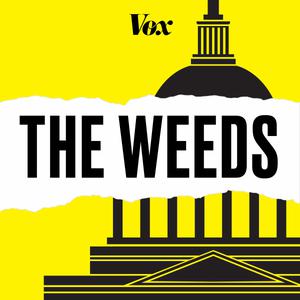 Explain It to Me
Explain It to Me
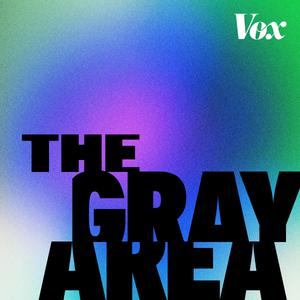 The Gray Area with Sean Illing
The Gray Area with Sean Illing
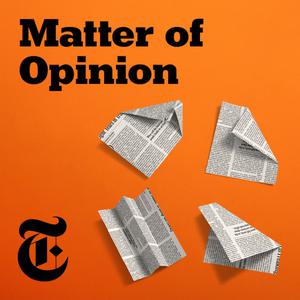 Matter of Opinion
Matter of Opinion
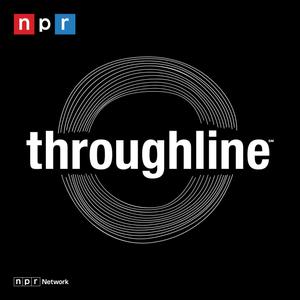 Throughline
Throughline
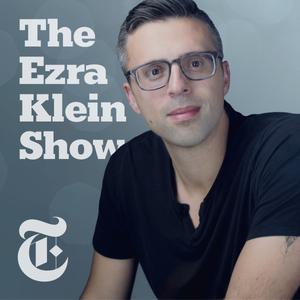 The Ezra Klein Show
The Ezra Klein Show
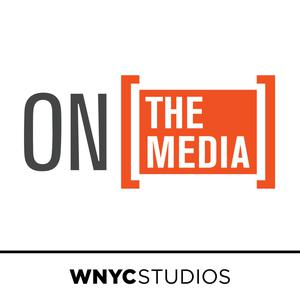 On the Media
On the Media